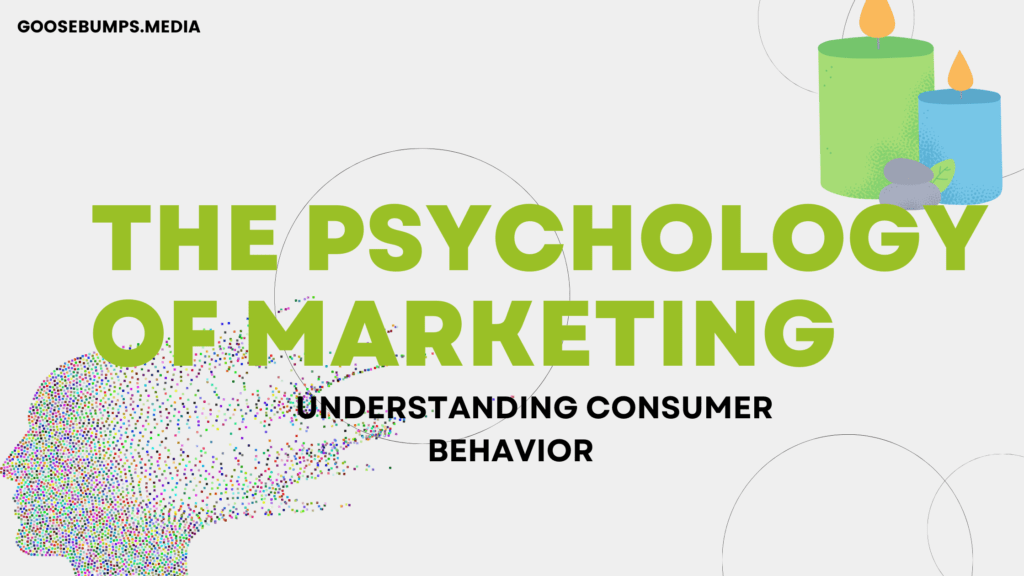
In today’s dynamic marketplace, understanding consumer behavior is crucial for businesses seeking to create effective marketing strategies. The psychology of marketing delves into the intricate workings of the human mind, unraveling the factors that influence purchasing decisions and brand perceptions. This article explores the fascinating realm of consumer psychology and its impact on marketing endeavors.
Introduction
The realm of marketing is not just about products and services; it’s about understanding the minds of consumers. Consumer behavior, rooted in psychology, drives the choices individuals make when interacting with brands. By comprehending the underlying psychological mechanisms, marketers can tailor their strategies to resonate with their target audience effectively.
Psychological Factors
A myriad of psychological factors contributes to consumer behavior. These include motivations, perceptions, attitudes, and beliefs. Motivations drive individuals to fulfill their needs and desires, shaping their purchasing decisions. Perceptions influence how consumers interpret and respond to marketing messages, while attitudes and beliefs impact brand loyalty and preference.
The Role of Emotions
Emotions play a pivotal role in consumer decision-making. Studies have shown that emotional responses often override rational considerations when making purchases. Marketers leverage emotions to create compelling narratives that resonate with consumers on a deep, emotional level, fostering brand connections and loyalty.
Cognitive Biases
Human cognition is susceptible to biases that affect decision-making. Cognitive biases, such as confirmation bias and anchoring bias, can lead consumers to make irrational choices. Marketers must be aware of these biases and craft strategies that mitigate their negative impact, ensuring a more rational decision-making process among consumers.
Social Influence
Social factors, including peer influence and societal norms, significantly impact consumer behavior. Social proof, testimonials, and influencer marketing are strategies that capitalize on social influence to sway consumer opinions and purchasing decisions. Understanding social dynamics is key to developing effective marketing campaigns.
Brand Perception
Consumers’ perceptions of brands are shaped by various factors, including brand image, reputation, and values. Marketers must work diligently to cultivate positive brand perceptions through consistent messaging, quality products/services, and ethical practices. A strong brand perception can lead to customer loyalty and advocacy.
Decision Making
The decision-making process in consumer behavior involves multiple stages, from problem recognition to post-purchase evaluation. Marketers can influence each stage by providing relevant information, addressing consumer concerns, and offering incentives that drive conversions. Understanding these decision-making stages is essential for crafting targeted marketing strategies.
Marketing Strategies
Armed with insights into consumer psychology, marketers can deploy targeted strategies to engage and convert their audience. Personalized marketing, storytelling, scarcity tactics, and social proof are examples of strategies rooted in consumer psychology. These approaches resonate with consumers’ psychological triggers, leading to more effective marketing outcomes.
Case Studies
Real-world case studies offer valuable insights into how consumer psychology shapes marketing success. From Apple’s emotional branding to Nike’s aspirational messaging, these examples showcase the power of understanding consumer behavior in crafting impactful marketing campaigns. By studying these cases, marketers can glean actionable strategies for their own endeavors.
Conclusion
In conclusion, the psychology of marketing provides a lens through which to understand and influence consumer behavior. By leveraging psychological insights, marketers can create compelling narratives, build strong brand connections, and drive conversions. Understanding the complexities of consumer psychology is not just a strategy but a necessity in today’s competitive market landscape.






